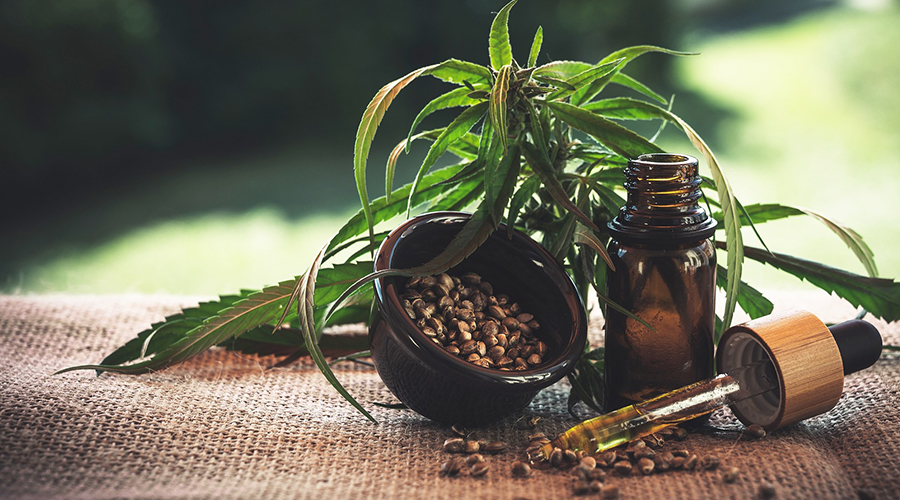You'll no doubt have heard about CBD in recent months, with claims about its therapeutic potential being ubiquitous in the media. What is CBD? Is it a fad or does it have real benefits? We've delved into the subject for you.
Cannabis products, including those for medical use, contain more than 100 cannabinoids, among them Δ9-tetrahydrocannabinol (THC) and cannabidiol (CBD) present in significant, but variable concentrations, which have piqued the most scientific interest. Available products are classified according to their THC and CBD concentration, expressed either as a percentage by weight (% w/w) for dried flowers, or as a concentration by weight (milligrams/milliliter; mg/mL) for oil-based products.
CBD has a similar structure to THC, but does not cause intoxication or euphoria. The World Health Organization (WHO) confirms that its use is non-addictive, which greatly contributes to its popularity!
Since CBD produces few side effects, patients and clinicians generally prefer to start medical cannabis treatment with CBD-rich products, in order to limit the use of THC and its potential side effects. THC can be added later in a progressive manner to improve the effectiveness of the treatment on specific symptoms.
Faced with the profusion of CBD-based products, many people ask their doctor if this substance could bring them a therapeutic benefit. From capsules to topical creams, through oils and oral atomizers, the craze for CBD is total!
Does the effectiveness of CBD live up to the hype that surrounds it?
CBD is scientifically known for its anti-epileptic and anxiolytic effects. Several studies have also found anti-inflammatory, immunomodulatory, antipsychotic and neuroprotective effects. A recent study by Cannabis Health, however, suggests that CBD-rich medical cannabis treatments alone result in only modest symptom improvement compared to treatment plans that combine CBD and THC.
In some settings, the use of THC may sometimes be necessary for patients to derive more benefit from their medical cannabis treatment.
Although the evidence supporting CBD as an anxiolytic is limited, Cannabis Health clinicians have seen good results using CBD-rich treatments to relieve anxiety symptoms. A recent increase in the number of long-term, high-quality studies on CBD and anxiety may offer more conclusive results in the coming years. Nonetheless, mental disorders such as anxiety currently account for only about 6% of patient cases at Cannabis Health.
There is also limited evidence that CBD could serve as a treatment for withdrawal symptoms.
The mechanisms of CBD's effects remain poorly understood and the lack of evidence supporting many of its potential therapeutic properties is proving to be a barrier to its clinical use. Pending the results of further studies, it is probably best to approach the CBD craze with caution and perhaps a dose of skepticism.
Other natural and magnetic methods
However, other natural, non-invasive and non-addictive methods effectively relieve anxiety and stress and can offer relief and serenity. This is the case with magnet therapy! Placing an 11mm medimag® magnet on the plexus will act on emotions and stress. For an in-depth treatment, the Energy Rebalancing boxes used regularly, bring vitality and energy in the morning, and soothing and relaxation in the evening.

